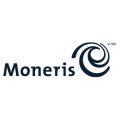When you're running a business in Ontario, choosing the right point of sale (POS) system is crucial. A well-chosen POS system not only streamlines your operations but also enhances customer experience and boosts your bottom line. This guide covers the essential features you should look for in a POS system tailored for Ontario businesses.
What is a POS System?
A Point of Sale (POS) system is a combination of hardware and software that allows businesses to complete sales transactions efficiently. At its core, a POS system serves as the central hub where sales are recorded, payments are processed, and essential business operations are managed.
Key Components of a POS System
- Hardware: The physical components of a POS system include devices like cash registers, card readers, barcode scanners, receipt printers, and sometimes touchscreen terminals. Modern POS systems also utilize tablets and mobile devices to offer greater flexibility.
- Software: The software component of a POS system processes sales transactions, tracks inventory, manages customer information, and generates sales reports. Advanced POS software can also integrate with other business systems, such as accounting software, e-commerce platforms, and customer relationship management (CRM) tools.
- Payment Processing: One of the critical functions of a POS system is to handle various payment methods. This includes traditional cash and card payments, as well as contactless payments and mobile wallet transactions. A secure POS system ensures that all payment data is encrypted and safely transmitted.
- Inventory Management: POS systems help businesses keep track of their stock levels in real-time. They can alert you when stock is low, help manage reorders, and provide insights into which products are performing well.
- Customer Management: With integrated CRM capabilities, a POS system can store customer purchase histories, preferences, and contact information. This data can be used to personalize marketing efforts and improve customer service.
- Reporting and Analytics: A robust POS system provides detailed reports on sales performance, inventory levels, and customer behaviour. These insights help businesses make informed decisions to optimize their operations and increase profitability.
By integrating these components, a POS system streamlines the sales process, enhances customer service, and provides valuable business insights. Whether you're running a retail store, a restaurant, or a service-based business, a reliable POS system is essential for managing daily operations effectively.
Key Features of Ontario POS Systems
1. Comprehensive Inventory Management
Effective inventory management is one of the primary functions of a robust POS system. It allows you to track inventory levels in real-time, which is essential for maintaining a balanced stock. With a comprehensive POS system, you can monitor your stock across multiple locations, ensuring that each outlet is well-stocked and ready to meet customer demands.
Key Features:
- Real-Time Tracking: This feature allows you to monitor inventory levels as sales happen. You can see which items are selling fast and which ones are not, helping you make informed purchasing decisions.
- Automated Reordering: The system can automatically reorder products when stock levels fall below a certain threshold, ensuring that you never run out of popular items.
- Stock Alerts: Receive notifications when stock is low, allowing you to restock in a timely manner and avoid stockouts.
- Detailed Reports: Generate detailed reports on inventory turnover, helping you identify trends and make strategic decisions about what to stock.
- Supplier Management: Manage supplier details and purchase orders directly through the POS system, streamlining the procurement process.
By leveraging these features, businesses can reduce the risk of overstocking or stockouts, optimize their inventory levels, and ensure they have the right products available for their customers.
2. Flexible Payment Processing
A modern POS system must support a variety of payment methods to cater to diverse customer preferences. Offering multiple payment options not only enhances customer convenience but also improves transaction speed and security.
Key Features:
- Credit and Debit Card Processing: Accept all major credit and debit cards, ensuring customers can pay with their preferred method.
- Mobile Wallets: Support for Apple Pay, Google Wallet, and other mobile payment options allows for quick and contactless transactions.
- Contactless Payments: Enable customers to pay by simply tapping their card or mobile device, speeding up the checkout process.
- QR Code Payments: Facilitate payments through QR codes, offering an additional layer of convenience and security.
- Secure Transactions: Ensure all transactions are encrypted and compliant with security standards, protecting both your business and your customers.
These features ensure that your POS system can handle the diverse payment preferences of your customers, enhancing their overall shopping experience and fostering trust in your business.
3. Customer Relationship Management (CRM)
Integrating CRM features into your POS system can significantly enhance your customer service capabilities. By storing and utilizing customer data, you can create personalized experiences that boost loyalty and repeat business.
Key Features:
- Customer Data Storage: Store important customer information, including purchase histories and contact details, to better understand their preferences and needs.
- Personalized Marketing: Use the stored data to create targeted marketing campaigns, offering promotions and discounts that are tailored to individual customers.
- Loyalty Programs: Implement loyalty programs that reward customers for repeat purchases, encouraging them to return to your store.
- Feedback Collection: Collect customer feedback directly through the POS system, helping you improve your products and services based on real customer insights.
With these CRM features, you can build stronger relationships with your customers, improve their shopping experience, and drive customer loyalty.
4. Employee Management
Efficient staff management is crucial for any business. A POS system with comprehensive employee management features can help you track performance, manage schedules, and ensure your team is working effectively.
Key Features:
- Time Tracking: Monitor employee hours with an integrated time clock, ensuring accurate payroll processing.
- Scheduling: Create and manage staff schedules within the POS system, making it easy to assign shifts and track attendance.
- Performance Reporting: Generate reports on employee performance, identifying top performers and areas for improvement.
- Access Control: Manage access levels for different employees, ensuring that only authorized personnel can access sensitive data.
These features help you manage labour costs, improve staff productivity, and ensure that your employees are motivated and efficient.
5. Sales and Analytics Reporting
A good POS system should provide comprehensive sales and analytics reporting. These reports give you insights into your business operations, helping you make informed decisions to optimize performance and profitability.
Key Features:
- Sales Reports: Track daily, weekly, and monthly sales data to understand your business’s financial performance.
- Trend Analysis: Identify sales trends and seasonal patterns to optimize inventory and marketing strategies.
- Customer Insights: Analyze customer data to understand purchasing behaviour and tailor your offerings accordingly.
- Operational Efficiency: Assess the efficiency of your operations by tracking metrics like transaction times and average sales per employee.
By utilizing these reporting features, you can gain a deeper understanding of your business and make data-driven decisions that enhance overall performance.
6. Mobile and Tablet POS Options
Having a mobile or tablet POS system can be a game-changer. These systems offer flexibility and convenience, allowing you to process transactions anywhere, whether in-store or at off-site events.
Key Features:
- Portability: Easily move the POS system around your store or take it to events and pop-up shops.
- Easy Setup: Mobile and tablet POS systems are typically easy to set up and configure, reducing the time and effort required to start using them.
- Versatility: Use the system for various tasks, including inventory management, sales reporting, and customer relationship management.
- Customer Interaction: Engage with customers more effectively by bringing the checkout process to them, reducing wait times and improving service quality.
These mobile and tablet options enhance the customer experience by providing a seamless and efficient checkout process, no matter where the transaction takes place.
7. Cloud-Based Operations
Cloud-based POS systems offer several advantages, including remote access to your business data, automatic updates, and enhanced data security. These systems are particularly useful for businesses with multiple locations, as they allow you to manage all your stores from a single platform.
Key Features:
- Remote Access: Access your business data from anywhere with an internet connection, making it easy to manage your operations on the go.
- Automatic Updates: Benefit from regular software updates that add new features and improve system performance without requiring manual intervention.
- Data Security: Store your data securely in the cloud, protecting it from local hardware failures and ensuring compliance with security standards.
- Scalability: Easily scale your POS system as your business grows, adding new features and capabilities as needed.
By leveraging cloud-based operations, you can enhance the efficiency and flexibility of your business, ensuring that you are always up-to-date with the latest technology.
8. Customizable Receipts and Promotions
Personalized receipts and the ability to set up automatic promotions can enhance customer satisfaction and encourage repeat business. Look for a POS system that allows you to customize receipts with your branding and offers tools to create and manage promotions easily.
Key Features:
- Branded Receipts: Customize receipts with your business logo, contact information, and personalized messages.
- Automatic Promotions: Set up promotions that automatically apply discounts or special offers during the checkout process.
- Loyalty Rewards: Integrate loyalty programs that reward customers for their purchases, encouraging them to return.
- Targeted Discounts: Offer targeted discounts based on customer purchase history and preferences.
These features help you create a more personalized and engaging shopping experience, driving customer loyalty and increasing sales.
9. Integration with E-commerce Platforms
If you run both a physical store and an online store, integrating your POS system with your e-commerce platform is essential. This ensures that your inventory is synchronized across all sales channels, preventing overselling and improving order fulfillment efficiency.
Key Features:
- Inventory Sync: Automatically synchronize inventory levels between your physical and online stores, ensuring accurate stock counts.
- Unified Sales Data: Consolidate sales data from all channels into a single platform, providing a comprehensive view of your business performance.
- Order Management: Manage orders from both physical and online stores in one place, streamlining the fulfillment process.
- Customer Integration: Combine customer data from all channels to create a unified customer profile, enhancing personalization and marketing efforts.
By integrating your POS system with your e-commerce platform, you can provide a seamless shopping experience for your customers and streamline your business operations.
10. Reliable Customer Support
Finally, reliable customer support is crucial when choosing a POS system. Ensure that your provider offers comprehensive support, including setup assistance, troubleshooting, and ongoing maintenance. This ensures that any issues can be resolved quickly, minimizing downtime and disruptions to your business.
Choosing the right POS system for your business in Ontario involves considering a variety of features that can streamline your operations, enhance customer experience, and boost your profitability. By focusing on comprehensive inventory management, flexible payment processing, CRM integration, employee management, and robust reporting, you can find a POS system that meets your specific needs. Additionally, mobile and tablet options, cloud-based operations, customizable receipts, e-commerce integration, and reliable customer support are essential features that can further enhance your business operations.
Key Takeaways
- Comprehensive Inventory Management: Essential for tracking stock levels and automating reordering processes.
- Flexible Payment Processing: Supports multiple payment methods, ensuring secure transactions.
- Customer Relationship Management (CRM): Enhances customer service and loyalty through personalized interactions.
- Sales and Analytics Reporting: Provides insights into sales trends and helps make informed business decisions.
- Cloud-Based Operations: Offers remote access, automatic updates, and improved data security.
Article filed under:
EducationShare



